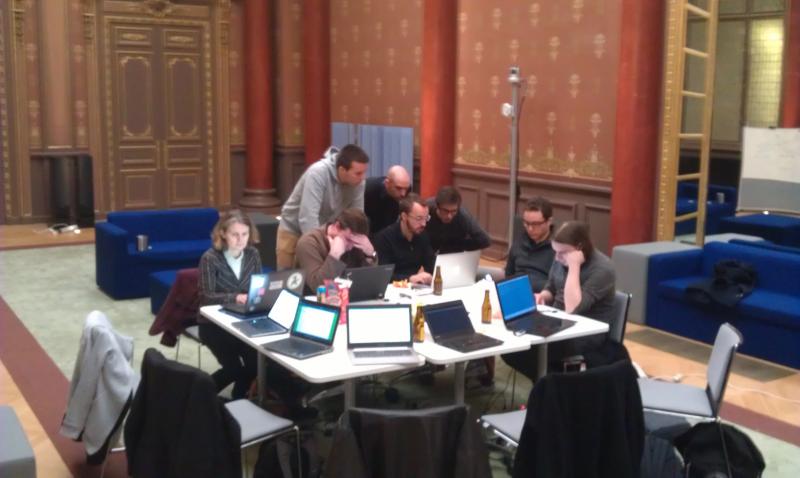[Note : Je vais cesser d’écrire en français sur ce blog. Désormais, ce que j’écris en français est publié sur mon blog personnel, y compris lorsque cela est lié à la FSFE.]
Mardi soir, Nicolas organisait le 2e MutterWare. Mais qu’est-ce que c’est que ça ?
Le MutterWare est une réunion d’utilisateurs de Mutt qui veulent partager leurs bonnes pratiques et quelques astuces bien utiles. Les non-utilisateurs de mutt curieux sont bienvenus, surtout s’ils sont légèrement blasés de leur client email ☺
Le nom est inspiré directement du TupperVIM organisé chez Mozilla, à Paris.
Pour cette deuxième édition, nous avons cette fois été invités à admirer les bureaux somptueux de Mozilla boulevard Montmartre. Voir la photo prise par Yoann :
Encore une fois, ce MutterWare était un bon mélange entre utilisateurs (très) expérimentés, et non-utilisateurs de Mutt curieux de voir comment fonctionne le machin et prêts à ouvrir leur terminal pour commencer à configurer la bête !
Quelques informations ont été ajoutées au wiki : https://wiki.fsfe.org/groups/Paris/Mutterware.
Pour ma part, j’insisterai sur cette très bonne page qui permet de démarrer sur Mutt. C’est en anglais mais c’est bien écrit. Cette page a cependant deux défauts à mon avis : elle se concentre sur l’usage à partir d’un serveur mail chez Google (or Gmail a des tas de particularités pas très orthodoxes) et elle se limite à un seul compte. Or je ne sais pas pour vous mais moi, j’ai deux comptes : l’un est plus, « personnel ».
Enfin, la cerise sur le gâteau, c’est Emmanuel qui l’a apportée en me montrant l’outil t-prot, qui permet de nous débarrasser de toutes ces petites choses qui peuvent être désagréables dans le mail : les gens qui font des citations trop longues, les gens qui font du top-posting ou encore les gens ont des signatures de 3 kilomètres. T-prot a aussi des fonctions particulières pour Mutt, comme par exemple l’argument --pgp-move qui déplace les informations relatives aux signatures openPGP d’un email vers le bas, et non vers le haut comme c’est le cas par défaut, ce qui permet d’avoir accès plus directement au contenu du mail, sans avoir à scroller ! Plus d’infos sur la config T-prote d’Emmanuel sur le wiki.
Du coup, j’ai touché pas mal à ma config (dispo sur https://github.com/hugoroy/.mutt). Tout est désormais plus sobre depuis que j’ai modifié les barres de statuts, retiré la barre d’aide, et remplacé quelques codes couleurs. Lire ses mails sur Mutt est encore plus plaisant qu’avant ☺
À bientôt pour la 3e édition ! N’hésitez pas à vous inscrire sur la liste fsfe Paris https://lists.fsfe.org/mailman/listinfo/paris ou à nous rejoindre sur irc #fellows-paris.

